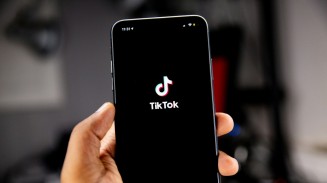Today, the Treasury and IRS made a significant announcement. They are building on President Biden's agenda to boost America's clean energy sector. The Inflation Reduction Act plays an important role. Key provisions of this Act are in effect. The goal is to fully enhance clean energy tax credits through affordable clean energy projects. The aim is to accelerate their construction. These projects will create well-paying jobs and lower energy costs for households.
The Inflation Reduction Act has been a cornerstone for the new elective pay and transferability methods. These methods will empower various entities, including state, local, and Tribal governments, non-profits, and U.S. territories like Puerto Rico. Previously, such entities and some businesses could not take full advantage of tax credits for clean energy.
Elective Pay and Transferability: What Does It Mean for Clean Energy?
Secretary Janet Yellen praises the Act's initiatives as transformative for economic and environmental objectives. John Podesta, Senior Advisor to the President, spoke up. So did Jennifer Granholm, Secretary of Energy. They discussed significant impacts. These impacts affect local governments and non-profit organizations. For the first time, these groups can get clean energy tax credits. This event is unprecedented in the nation's history.
The Act permits these entities to receive elective payments for 12 clean energy tax credits. Noteworthy among them are the Investment and Production Tax credits. Businesses are not left behind, with the opportunity for elective pay for credits in Advanced Manufacturing, Carbon Oxide Sequestration, and Clean Hydrogen.
For companies with insufficient tax liabilities to capitalize on the credits, transferability allows them to receive instant, tax-free funding by transferring a segment of their clean energy credits to third parties.
ALSO READ: Alabama Judge Deems Small Business Reporting Rule Unconstitutional in Treasury Department Setback
What Are the Details of Elective Pay and Finance Flexibility?
Treasury's final rules on elective pay eliminate uncertainties about the law's eligibility criteria and detail the claiming process and timelines.
Further, the Notice of Proposed Rulemaking, released concurrently, plans to grant more room for entities in joint ownership of clean energy projects to benefit from elective pay. While entities recognized as partnerships are not directly eligible for elective pay, the regulation changes propose pathways to circumvent this through 'election out' of partnership tax treatment.
The updated rules advocate for renewable energy investments to be made through noncorporate entities. Adjustments in joint marketing restrictions are also proposed, easing the way to establish multi-year power purchase agreements, which were previously shackled by partnership taxation requirements.
Public Engagement and Infrastructure for Implementation
The public's voice is essential in these matters, with a request for written comments on the proposed rules accessible until May 10, 2024. This feedback mechanism is integral to refining these policies, signifying a demand for inclusive decision-making.
The IRS has rolled out the IRS Energy Credits Online (ECO) system to support the entities eligible for direct payments or clean energy credit transfers. Entities must register and include their registration number on annual returns when claiming elective pay or transfer elections. This measure prevents fraud while enabling qualified entities to access their benefits seamlessly after filing their returns.
Introducing these final rules cements a commitment to frog-leaping into a cleaner, more sustainable energy landscape. It symbolizes the administration's proactive approach to tackling climate change and fostering economic growth through new clean energy policies.
RELATED TOPIC: IRS Targets 125,000 High-Earners Under Inflation Reduction Act for Failure to File Income Tax Returns
© 2023 Lawyer Herald All rights reserved. Do not reproduce without permission.
Get the Most Popular Lawyerherald Stories in a Weekly Newsletter





